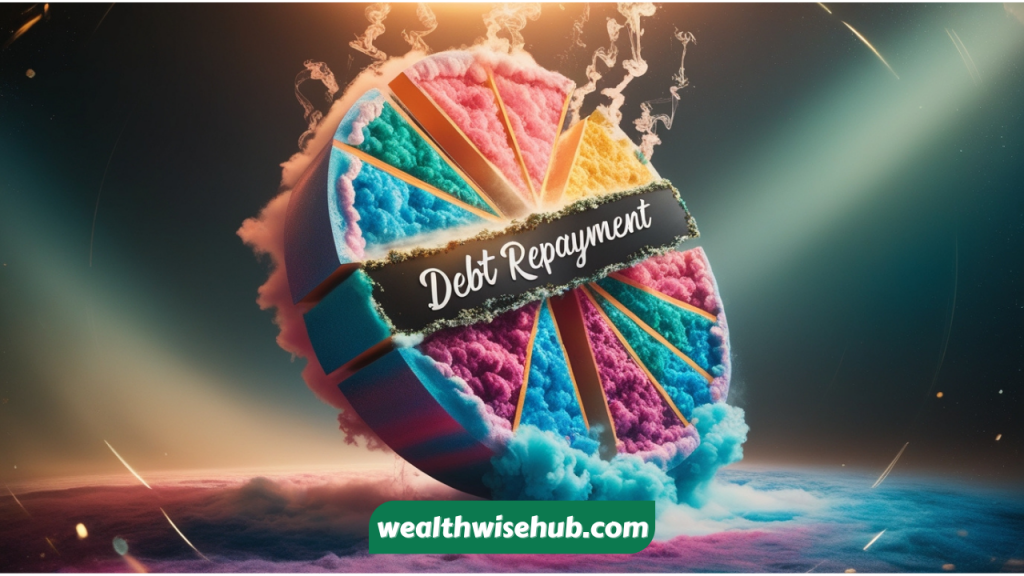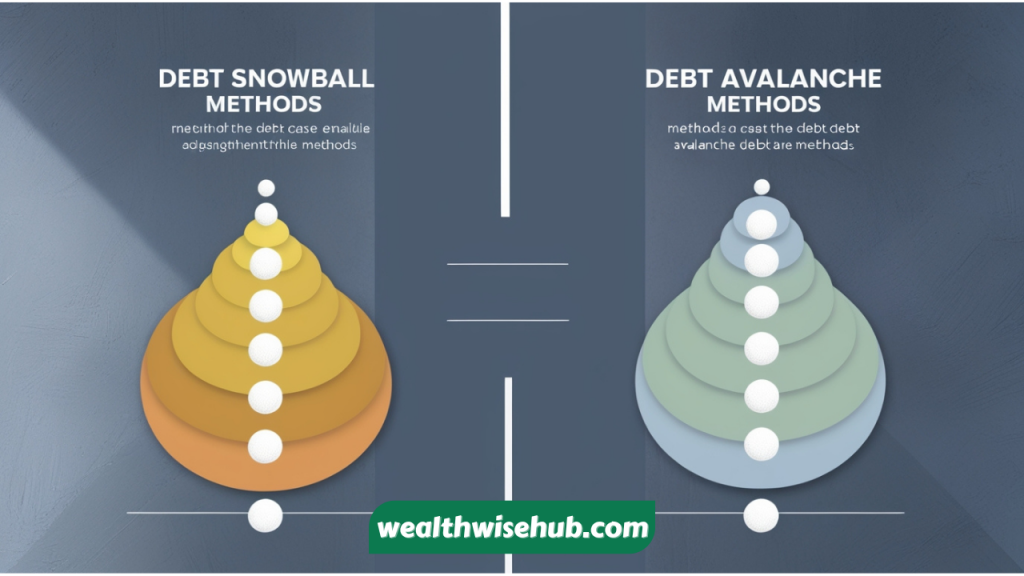
Struggling with credit card debt? Learn effective strategies to manage and reduce credit card debt wisely and achieve financial freedom with this comprehensive guide.
Credit card debt can feel overwhelming, especially when balances climb higher than expected. Interest rates, late fees, and minimum payments can create a cycle that’s hard to break. However, managing and reducing credit card debt is not just possible—it’s achievable with the right strategies and mindset. Whether you’re looking to pay off balances faster or regain control of your finances, small, deliberate steps can lead to significant changes.
This guide will explore actionable ways to manage credit card debt effectively, from creating a repayment strategy to avoiding future pitfalls. By understanding how to prioritize your payments and negotiate better terms, you can regain control of your financial health. If you’re ready to break free from credit card stress, let’s dive into proven methods to help you reduce your debt wisely.
How to Manage and Reduce Credit Card Debt Wisely
1. Understand Your Debt
The first step to tackling your credit card debt is understanding it in detail.
- Make a list of all your credit card balances, interest rates, and minimum payments.
- Determine how much of your monthly income is going toward credit card payments.
- Calculate your debt-to-income (DTI) ratio to understand your financial standing.
By having a clear picture, you’ll know where to focus your efforts.
2. Create a Budget That Works
A budget is a powerful tool for managing credit card debt.
- Identify your fixed and variable expenses.
- Set realistic spending limits for non-essential items.
- Allocate a specific amount each month toward debt repayment.
Budgeting allows you to see where your money is going and ensures that debt repayment is a priority.
3. Prioritize Your Payments
Choosing the right repayment strategy is key to reducing debt efficiently.
- Debt Snowball Method: Pay off the smallest debts first to gain momentum.
- Debt Avalanche Method: Focus on paying down high-interest debts to save on interest.
- Always make at least the minimum payment on all cards to avoid penalties.
Both strategies have their benefits, so choose the one that best suits your financial situation.
4. Consider a Balance Transfer
If your credit score is decent, a balance transfer can be an effective way to manage credit card debt.
- Look for cards with low or 0% introductory APR offers.
- Transfer high-interest balances to save on interest.
- Pay off the transferred balance within the promotional period to maximize savings.
This approach simplifies payments and reduces overall costs.
5. Negotiate Better Terms
If you’re finding it difficult to keep up with credit card payments, consider negotiating with your credit card issuer.
- Call Your Creditor: Contact your credit card company and explain your financial situation. In many cases, they may be willing to offer a lower interest rate, waive fees, or create a more manageable payment plan.
- Request Hardship Programs: Some issuers offer hardship programs for those facing financial difficulties. These programs can temporarily lower your interest rate or offer payment relief.
Negotiating with your credit card issuer can provide significant relief and help you pay down your debt more effectively.

6. Consolidate Your Debt
Debt consolidation is another powerful strategy for managing and reducing credit card debt.
- Personal Loans: Apply for a personal loan with a lower interest rate to pay off multiple credit cards. This can help you consolidate your debt into one payment at a lower rate than most credit cards.
- Home Equity Loans: If you own a home, you could use a home equity loan or line of credit (HELOC) to consolidate your debt. However, be cautious, as your home becomes collateral.
- Debt Management Plans (DMPs): Work with a certified credit counselor to create a debt management plan that consolidates your credit card debt into one monthly payment. The counselor may negotiate with creditors to reduce interest rates or fees.
Debt consolidation can help simplify your finances and make your payments more manageable, but it’s important to choose the right option for your situation.
7. Cut Unnecessary Expenses
Reducing credit card debt requires finding ways to free up extra funds for debt repayment.
- Review Your Budget: Go through your monthly expenses and identify areas where you can cut back, such as dining out, subscriptions, or impulse purchases.
- Limit Credit Card Use: Temporarily stop using your credit cards for non-essential purchases until your debt is more manageable. This prevents adding to your balance while you work on paying it down.
- Look for Additional Income: Consider taking on a part-time job, freelancing, or selling items you no longer need to generate extra income that can be put toward debt repayment.
By cutting back on unnecessary expenses, you can free up more funds to put toward reducing your credit card debt.
8. Seek Professional Help if Needed
Managing credit card debt can sometimes be overwhelming, especially if you’re dealing with a significant amount of debt.
- Credit Counseling Services: Certified credit counselors can help you create a personalized plan to pay off debt. They offer guidance, and budgeting advice, and may negotiate with creditors on your behalf.
- Debt Settlement Companies: These services negotiate with creditors to reduce the total amount you owe. However, they may come with high fees and potentially negative impacts on your credit score, so research thoroughly before choosing this option.
Professional help can be an invaluable resource if you’re struggling to manage your credit card debt on your own.
9. Stay Committed and Monitor Your Progress
Staying on track with your debt repayment plan is essential for success.
- Set Milestones: Celebrate small victories, such as paying off one credit card or reducing your debt by a certain percentage. This helps keep you motivated.
- Review Your Budget Regularly: Check your budget and track your spending at least once a month to make sure you’re staying on course.
- Use Tools and Apps: Take advantage of financial tools and apps to track your credit card balances, interest rates, and repayment progress.
Commitment, patience, and consistency are key to successfully managing and reducing credit card debt.
The Benefits of Managing Credit Card Debt Wisely
Improved Credit Score
Your credit score is directly impacted by your credit card debt. High balances relative to your credit limit can lead to a lower credit score, which in turn affects your ability to qualify for loans or credit at favorable terms. By managing your credit card debt effectively, you can reduce your credit utilization ratio—the percentage of available credit you’re using—which can significantly boost your credit score. A higher credit score can lead to better interest rates, more financial opportunities, and greater overall financial health.
Lower Interest Payments
Credit cards often come with high interest rates, which can make it difficult to pay down debt efficiently. By paying off high-interest debt first and avoiding carrying balances, you can save money on interest over time. This can free up funds that can be redirected toward savings, investments, or other financial goals. Strategies like using the debt avalanche method can help you minimize interest costs and reduce the total amount you need to repay.
Reduced Financial Stress
Credit card debt can be a significant source of stress and anxiety. The constant worry about making payments and the potential for debt collectors to contact you can impact both mental and physical health. By taking control of your debt and working towards paying it off, you can alleviate this stress, gain peace of mind, and enjoy a more stable and secure financial future.
Greater Financial Flexibility
When you are not tied down by significant credit card debt, you have more flexibility in your financial decisions. Whether it’s investing in opportunities, making a major purchase, or planning for unexpected expenses, having low or no credit card debt gives you the freedom to manage your finances without the burden of large monthly payments. This increased flexibility allows you to prioritize your financial goals and work toward building a more prosperous future.
More Opportunities for Saving and Investing
High credit card debt can make it difficult to allocate funds toward saving and investing. When you focus on paying off your debt, you create room in your budget to contribute to retirement accounts, emergency funds, and investment portfolios. This not only helps secure your future but also takes advantage of compounding growth over time, which can significantly increase your wealth.
Better Financial Habits
Managing credit card debt wisely fosters discipline and helps you develop better financial habits. You learn to budget effectively, set goals, and stick to spending limits. These habits are crucial for long-term financial health and can positively impact other aspects of your financial life, such as saving for a down payment on a house, funding your children’s education, or planning for retirement.
Take the First Step Toward Financial Freedom
It’s never too late to start managing your credit card debt wisely. Whether you’re just beginning or are already working on a debt reduction plan, taking proactive steps today can make a significant difference. Start by understanding your debt, creating a budget, and exploring repayment strategies. With persistence, the right strategies, and a commitment to your financial goals, you can break free from the cycle of credit card debt and move toward a brighter, more financially secure future.

Conclusion:
Managing and reducing credit card debt starts with understanding your financial situation and creating a clear plan. Prioritizing payments, negotiating better terms, and avoiding new debt are critical steps in the journey. Strategies like the Debt Snowball or Debt Avalanche method can accelerate progress, while tools like balance transfers offer relief.
Ultimately, managing debt is about creating sustainable financial habits. By staying disciplined and seeking help when needed, you can break free from the burden of credit card debt and enjoy financial freedom. Share this guide with someone who could use these tips, and let’s work together to achieve financial health.
Credit card debt doesn’t have to control your life. You can manage and reduce your debt effectively with determination and the right approach. Which of these strategies will you try first? Share your thoughts in the comments below! Don’t forget to share this article with friends or family who may benefit. Together, we can achieve financial freedom.
FAQs:
1. How can I decide between the Debt Snowball and Debt Avalanche methods?
The Debt Snowball method is great for staying motivated, as you see quick wins by paying off smaller debts. The Debt Avalanche method saves more money in the long run by tackling high-interest debts first.
2. What’s the best way to negotiate a lower interest rate?
Call your credit card issuer, explain your financial situation, and highlight your history of on-time payments. Be polite yet persistent.
3. Will closing unused credit cards improve my credit score?
Not necessarily. Closing accounts can reduce your credit history length and increase your credit utilization ratio, hurting your score.
Recommended Reading:
📖 Credit Repair Kit for Dummies by Steve Bucci
This practical guide provides step-by-step instructions to repair your credit, manage debt effectively, and avoid future pitfalls.
📖 The Total Money Makeover by Dave Ramsey
A no-nonsense approach to getting out of debt, this book outlines proven strategies for budgeting, tackling credit card debt, and achieving financial freedom.
📖 Your Score: An Insider’s Secrets to Understanding, Controlling, and Protecting Your Credit Score by Anthony Davenport
A deep dive into understanding credit scores, this book offers actionable tips for managing credit card debt and improving financial health.
Get Financial Advice Daily
Thousands of people are already using this platform to earn money online. What are you waiting for? Get started today: Start here